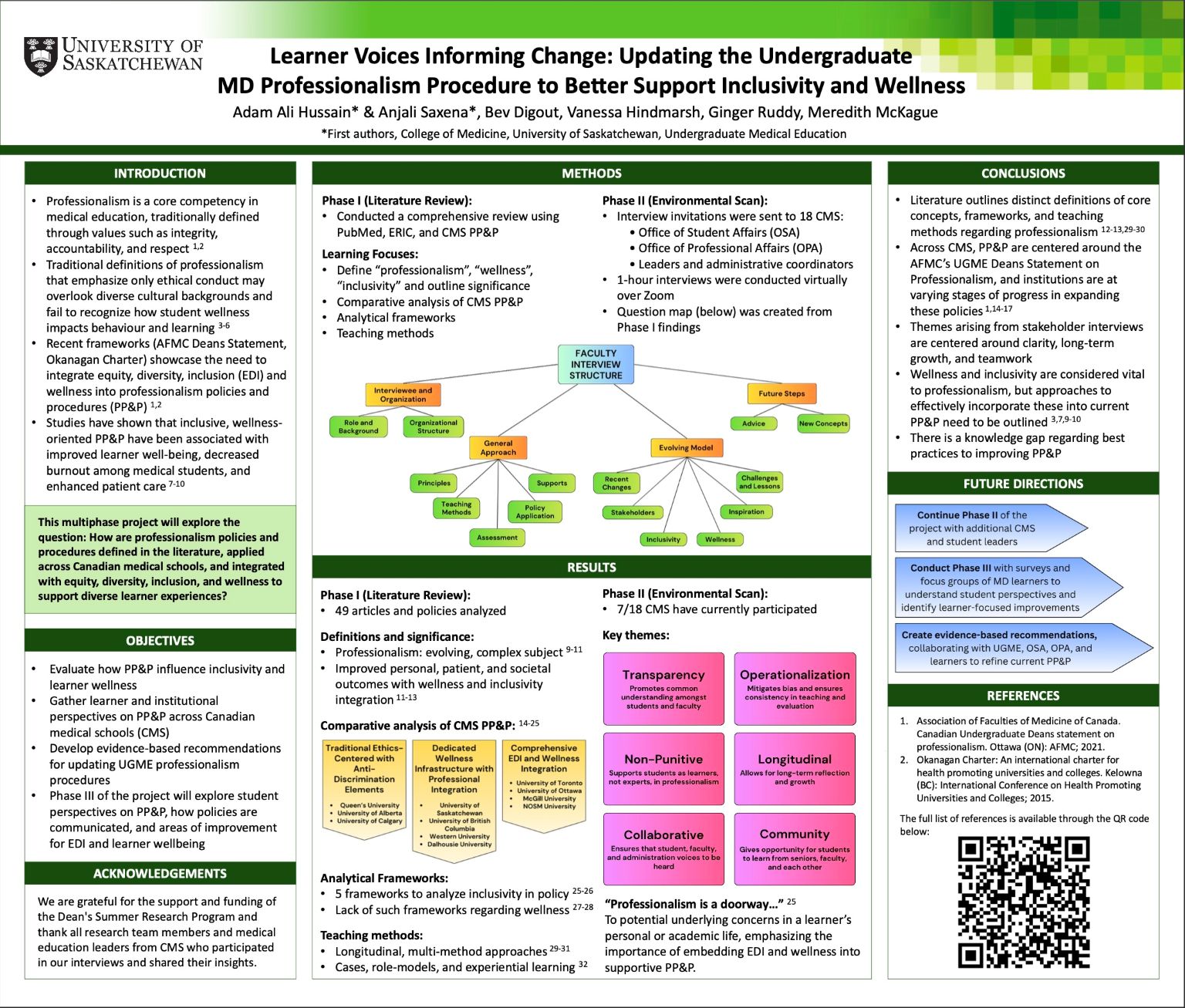
Learner Voices Informing Change: Updating the Undergraduate MD Professionalism Procedure to Better Support Inclusivity and Wellness
Adam Hussain & Anjali Saxena
Background: Professionalism is a core competency in medical education, traditionally defined through ethical conduct alone. This may not effectively support equity, diversity, and inclusion (EDI) or learner wellness, yet research shows addressing that these gaps reduces burnout and enhances patient care.
Objective: This study evaluated how professionalism policies and procedures (PP&P) influence EDI and wellness across Canadian medical schools (CMS), and aimed to develop evidence-based recommendations for updating PP&P in medical education.
Methods: A qualitative design was used in 3 phases: Phase I involved a comprehensive review of 49 articles using PubMed, ERIC, and institutional documents. Phase II consisted of structured interviews with stakeholders from 18 CMS (ongoing). Phase III will explore student perspectives on PP&P, focusing on communication and EDI/wellness incorporation.
Results: Phase I showed multiple analytical frameworks for PP&P, evolving teaching methods, and variation in wellness/EDI integration across institutions. Phase II included 7/18 interviews identifying 6 key themes: transparency, operationalization, non-punitive approaches, longitudinal learning, collaborative development, and community-based learning.
Conclusions/Future Directions: Wellness and inclusivity are increasingly recognized as vital to professionalism, yet best practices for incorporating them in PP&P remain unclear. Phase II and III are ongoing and will provide further insight into institutional PP&P and student perspectives.
